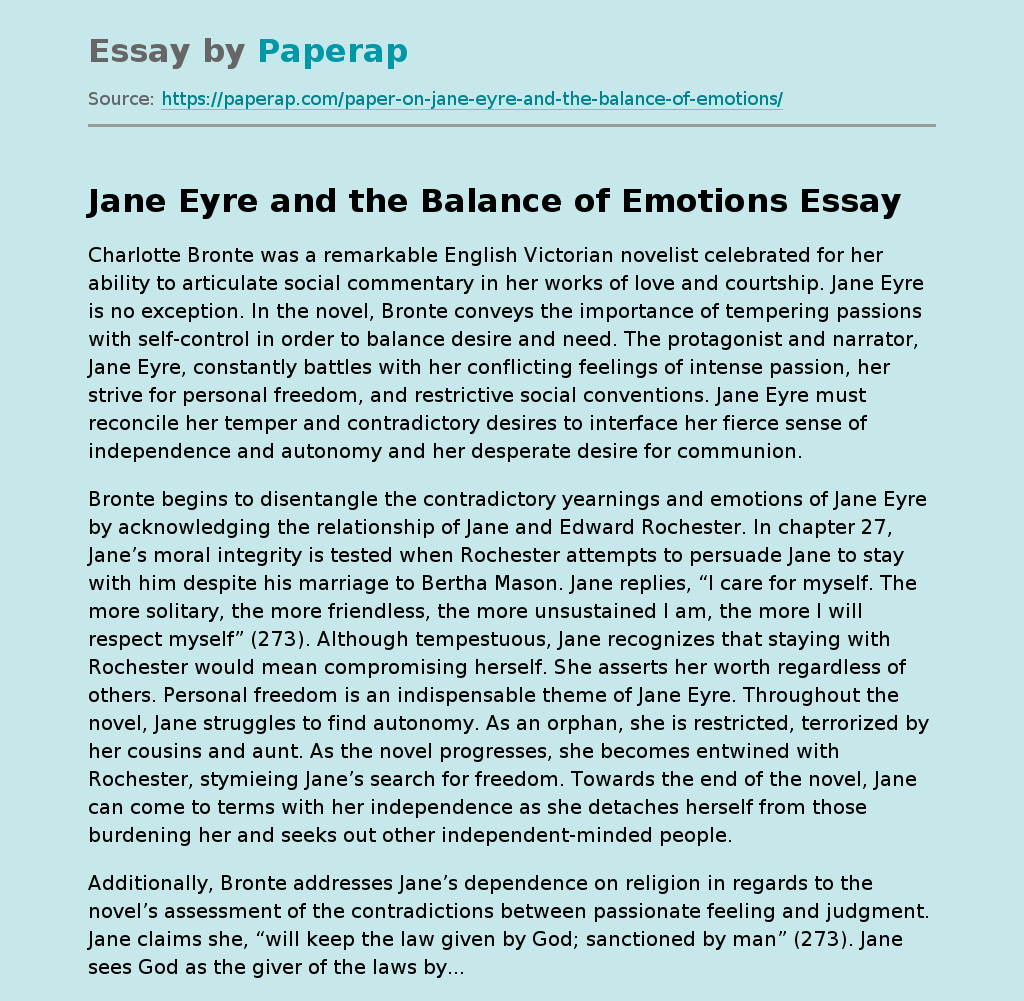Jane Eyre and the Balance of Emotions
Charlotte Bronte was a remarkable English Victorian novelist celebrated for her ability to articulate social commentary in her works of love and courtship. Jane Eyre is no exception. In the novel, Bronte conveys the importance of tempering passions with self-control in order to balance desire and need. The protagonist and narrator, Jane Eyre, constantly battles with her conflicting feelings of intense passion, her strive for personal freedom, and restrictive social conventions. Jane Eyre must reconcile her temper and contradictory desires to interface her fierce sense of independence and autonomy and her desperate desire for communion.
Bronte begins to disentangle the contradictory yearnings and emotions of Jane Eyre by acknowledging the relationship of Jane and Edward Rochester. In chapter 27, Jane’s moral integrity is tested when Rochester attempts to persuade Jane to stay with him despite his marriage to Bertha Mason. Jane replies, “I care for myself. The more solitary, the more friendless, the more unsustained I am, the more I will respect myself” (273).
Although tempestuous, Jane recognizes that staying with Rochester would mean compromising herself. She asserts her worth regardless of others. Personal freedom is an indispensable theme of Jane Eyre. Throughout the novel, Jane struggles to find autonomy. As an orphan, she is restricted, terrorized by her cousins and aunt. As the novel progresses, she becomes entwined with Rochester, stymieing Jane’s search for freedom. Towards the end of the novel, Jane can come to terms with her independence as she detaches herself from those burdening her and seeks out other independent-minded people.
Additionally, Bronte addresses Jane’s dependence on religion in regards to the novel’s assessment of the contradictions between passionate feeling and judgment. Jane claims she, “will keep the law given by God; sanctioned by man” (273).
Jane Eyre and the Balance of Emotions. (2018, Oct 10). Retrieved from https://paperap.com/paper-on-jane-eyre-and-the-balance-of-emotions/

